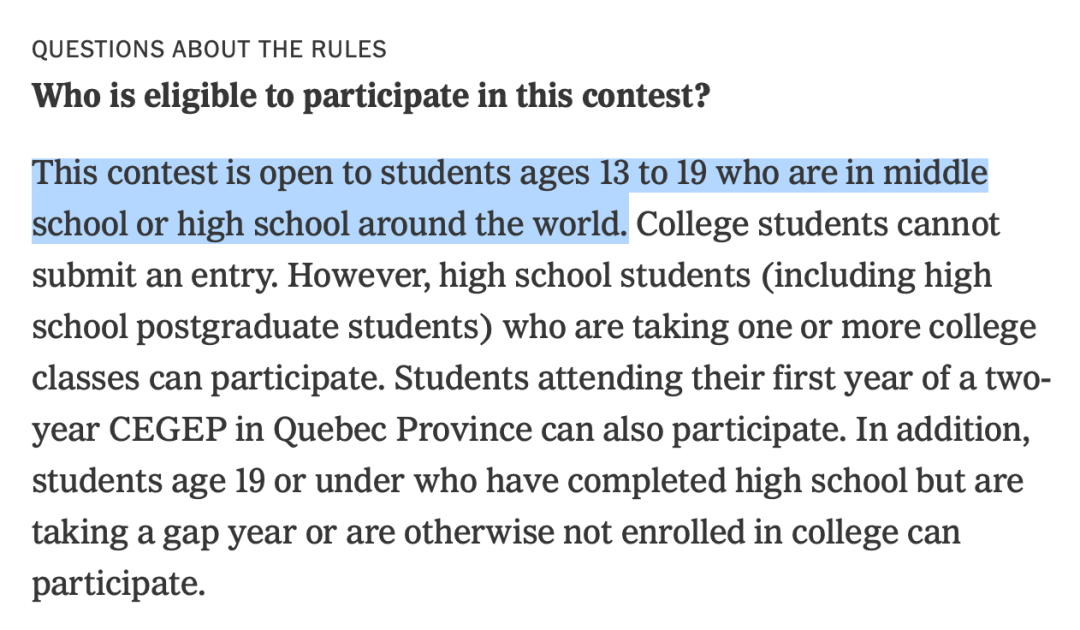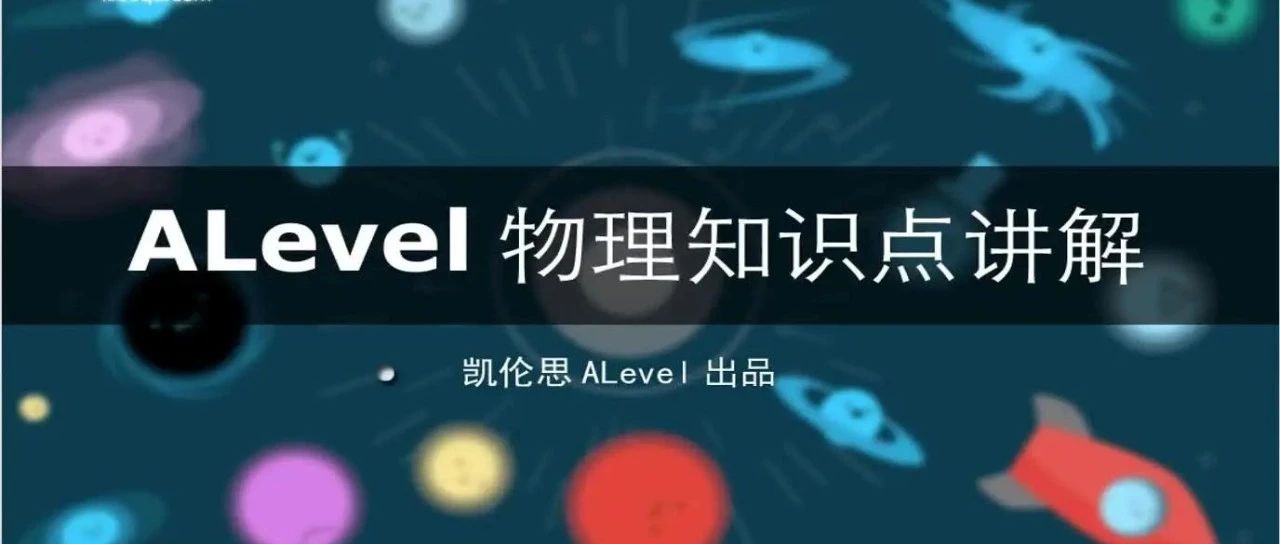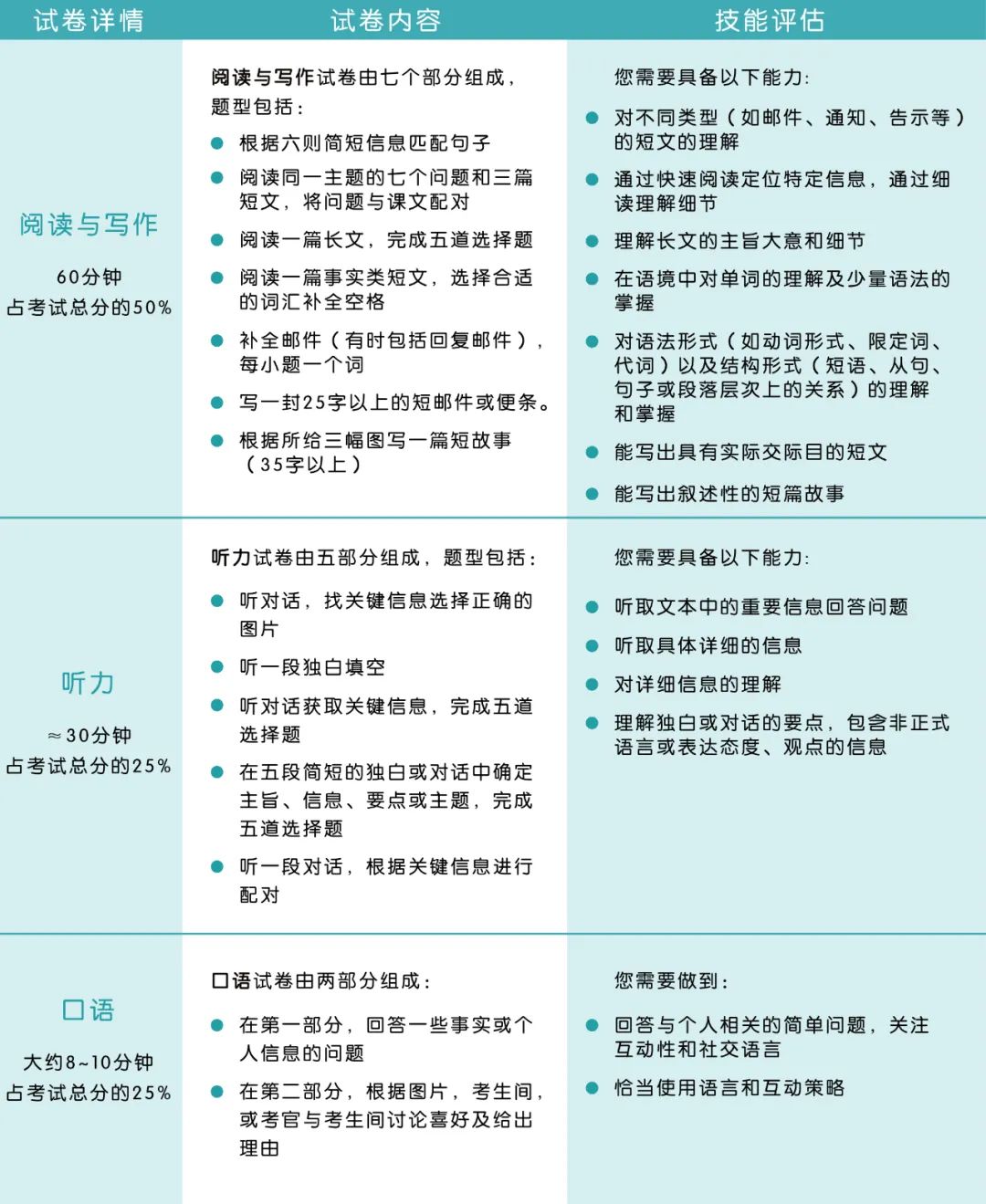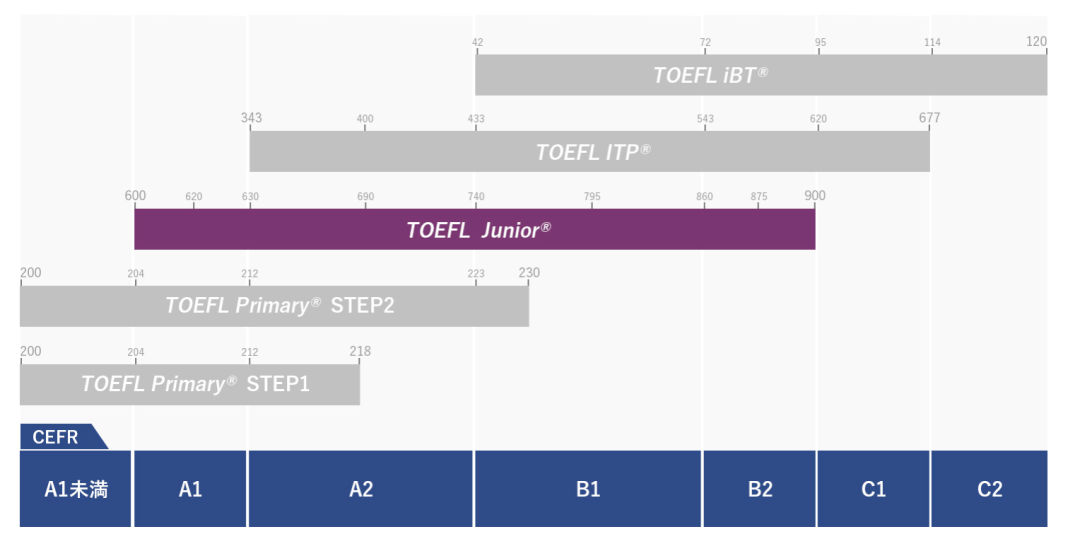
邀请稿全文
Once again we invite high school students to enter our letter-writing competition. Write a letter to the editor in response to a Times news or opinion article from the past week, and we will choose some of our favorites for publication.
Letters should be about 150 to 200 words and include the headline and a link to the article. Include your name, age, high school and grade, city or town and state (for publication), and telephone number (not for publication).
Email: letters@nytimes.com
Please put “Student Competition” in the subject line. The deadline is Monday, May 1, at 10 a.m. Eastern time.
Good luck!
可能有个困惑,国际生能不能投稿,这个稿子里到是没有说,但是NYT 另外一个更为正式的针对学生的写作比赛 “Annual Student Editorial Contest”,国际生是可以参加的。

所以,如果时间合适的话,不妨可以投稿试下。作为国际生或许可以提供不同的视角。而如果真的脱颖而出,有NYT 的背书还是一个不错的荣誉。
往期投稿例子(下面例子的作者有些不是高中生,只是供文章形式和内容参考)
# 例子1 How to Pick the Right College for You
To the Editor:
Re “There’s Only One College Rankings List That Matters,” by Frank Bruni (Opinion guest essay, April 2):
Several years ago we took my grandson on a tour of Duke University as part of his college tours. The woman who greeted us talked about the school and gave us the best advice I have ever heard.
To paraphrase, she said if you apply and get into Duke, congratulations. You will have a fantastic educational experience that will set you up for whatever your career path may be.
If you apply and do not get into Duke and go elsewhere, congratulations. You will have a fantastic experience that will set you up for whatever your career path may be. It’s not about the school; it’s all about you.
Shirley Brizz
Chagrin Falls, Ohio
# 例子2 The Guilt of Putting Down Your Pet
To the Editor:
Re “Ending Your Pet’s Life Was the Right Decision. So Why Do You Feel So Guilty?,” by Karen Fine (Opinion guest essay, April 4):
Dr. Fine’s article really hit home for me. I still play the “what if” and “was it too soon?” guilt tape 10 months after euthanizing my beloved dog, Bella.
She was 14, semi-incontinent and hard of hearing, and suffered three major seizures the day before she was put down. She had been living with a mass in her liver that was probably cancer for at least a year. I had done everything I could think of — giving her a special diet, Chinese herbs, acupuncture every couple of weeks and vitamin C infusions, and taking her to regular vet checkups.
But after her seizures, my struggle to find pet sitters before a weeklong trip, and a discussion with my vet, who agreed it was time, I arranged for an at-home vet appointment.
The morning of the appointment, she seemed to rally a bit and trotted around the yard as normal. Joined by friends, we did a goodbye ceremony in the backyard and sang to her as the vet did the deed.
Despite all this, I still wonder if we could have had some more time. Rationally, I know it was the right time and the right decision, but it’s just so hard to say goodbye to a beloved family member.
Diana Halpenny
Sacramento
# 例子3 Walking as a Cure for What Ails Us
To the Editor:
Re “Whatever the Problem, It’s Probably Solved by Walking,” by Andrew McCarthy (Opinion guest essay, March 26):
I can’t quibble with Mr. McCarthy’s observations that walking is a kind of cure for what ails us. He is preaching to the choir in my case, since I walk a lot.
But I wonder if he’s published this essay in the wrong publication. He should consider one that caters to municipal officials and town planners who may be able to counter the effects of more than half a century of suburbanization, which, in America at least, has reduced the number of places where walking is pleasurable or even possible.
As Rebecca Solnit, whom he cites, sadly remarked in her seminal book, “Wanderlust: A History of Walking”: “The suburbs made walking ineffective transportation within their expanses, but the suburbanization of the American mind has made walking increasingly rare even when it is effective.”
Jeanne Bonner
West Hartford, Conn.













